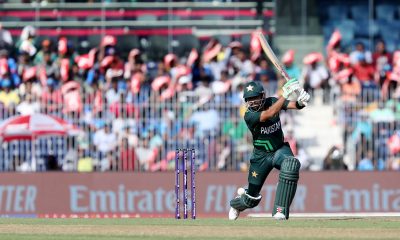Cronje was made an example of and handed a life ban from the game, but the precedent hasn’t stuck.
The four international players handed lifetime bans from cricket for involvement in match-fixing before the landmark Cronje scandal would all see their bans lifted at a later date, and since then, very few players or coaches have received similar sanctions.
The only high profile cricketers to be handed full life bans have been Pakistan’s Danish Kaneria and New Zealand’s Lou Vincent, and both have recently sought to have their bans overturned.
These sanctions stretch beyond playing the game and extend to any form of organised involvement in the game and, in the case of Cronje, being barred from even entering a cricket ground.
The life bans just haven’t stuck with the International Cricket Council seemingly unable to legally enforce them.
Former India batsman Mohammad Azharuddin, the man who allegedly introduced Cronje to match-fixers, had his life ban overturned in 2012.
Fast bowler Sreesanth engaged in a long legal battle and succeeded in having his life ban for spot-fixing during the 2013 Indian Premier League reduced to seven years.
Within cricket, there seems to be some resistance to allowing players convicted of fixing to resume their playing careers, but many have returned and even earned internationals recalls. The most famous example of this being Mohammad Amir.
It is clear that corrupt approaches continue in cricket, as evidenced by the fresh case involving former Zimbabwe coach Heath Streak who pleaded guilty to charges of introducing players to fixers and received an eight ear ban.
What is not so clear is how much the match-fixing has actually stained the game of cricket. We have no way of reckoning the impact while we are unaware of the full scale.
The issue of match-fixing is not a black and white one; although there are certainly some who see it that way, the ICC has recognised different levels of involvement and established clearer guidelines. Shakib-al-Hasan of Bangladesh, for instance, was banned for one year for failing to report a corrupt approach, and it has done little to stain his image. A player or coach guilty of a more serious offence would likely get a longer sanction.
That life bans are now considered the nuclear option might be a clue to how pervasive the influence of shady characters on cricket has been.
























